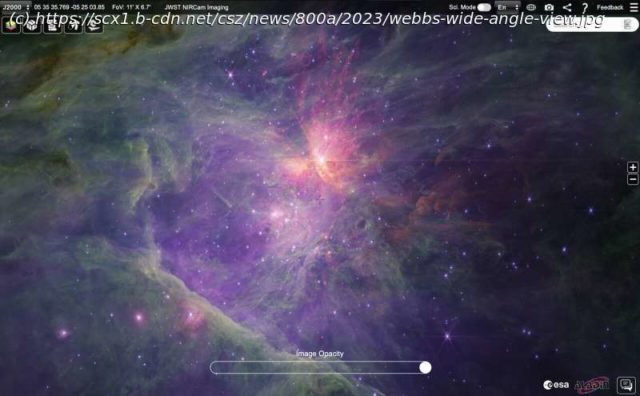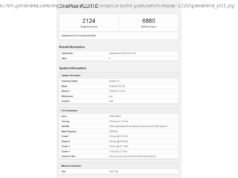New images of the Orion Nebula from the NASA/ESA/CSA James Webb Space Telescope have been included in ESA’s ESASky application, which has a user-friendly interface to visualize and download astronomical data.
New images of the Orion Nebula from the NASA/ESA/CSA James Webb Space Telescope have been included in ESA’s ESASky application, which has a user-friendly interface to visualize and download astronomical data.
One of the brightest nebulae in the night sky is Messier 42, the Orion Nebula, located south of Orion’s belt. At its core is the young Trapezium Cluster of stars, the most massive of which illuminate the surrounding gas and dust with their intense ultraviolet radiation fields, while protostars continue to form today in the OMC-1 molecular cloud behind.
The nebula is a treasure trove for astronomers studying the formation and early evolution of stars, with a rich diversity of phenomena and objects, including: outflows and planet-forming disks around young stars; embedded protostars; brown dwarfs; free-floating planetary mass objects; and photodissociation regions—the interface regions where the radiation from the massive stars heats, shapes and influences the chemistry of the gas.






